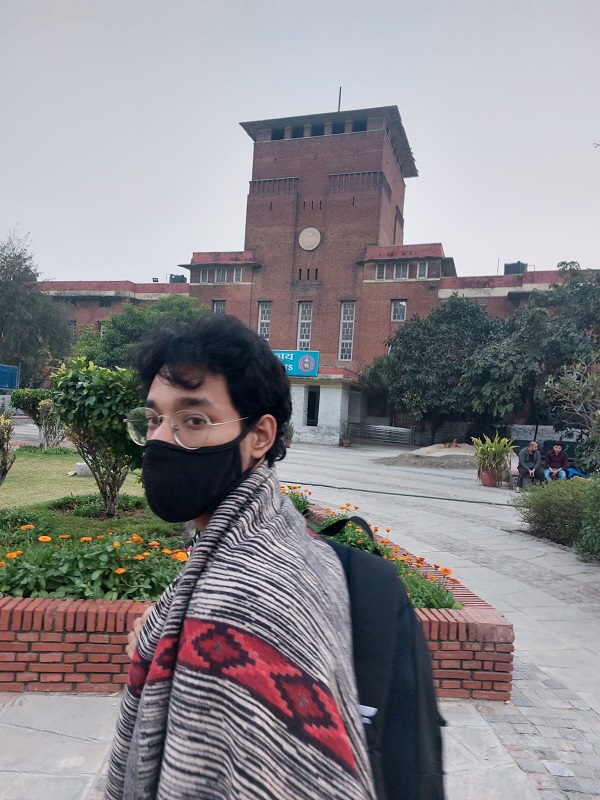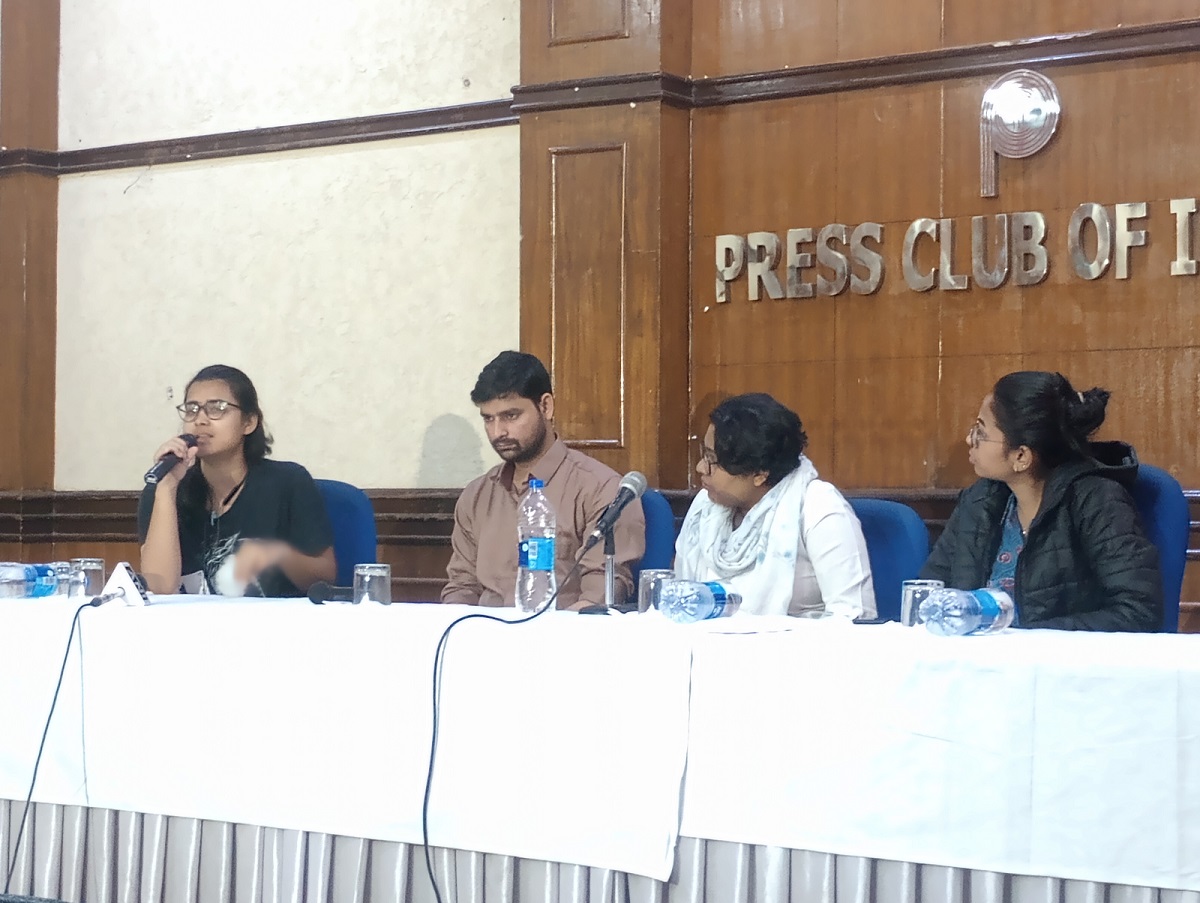“Who will be responsible for students’ rights if the government has no jurisdiction over International universities?” asked Aishe Ghosh.
New Delhi: South Asian University(SAU) students are protesting against the authority’s decision to take punitive actions against the students for participating in the movement for stipend and scholarship hikes. They have accused the administration of being authoritarian and of ignoring their appeal for dialogue and negotiation.
Addressing a press conference at the Press Club of India, the students talked about the situation in the international university and its repressive administration. Apoorva Y.K, an expelled LLM student who has started an indefinite sit-in strike outside the campus in Maidan Garhi, highlighted the plight of the protestors. The conference was also joined by representatives from the Students’ Federation of India(SFI) and the All India Students’ Association(AISA).
In October, the student protests had begun on campus. The demands were an increase in Master’s and Ph.D. stipends and representation of students in committees such as the Sexual Harassment Committee. The administration not only refused the demands but also took punitive action against the students. Five students were expelled, rusticated, and suspended. One of these students Ammar Ahmad was driven to the verge of suicide by the distress caused by his rustication. He was hospitalized on 22 November after he suffered a cardiac arrest. The scholarship protests died out eventually but in February the administration issued fresh expulsion letters to the students. They were also issued show-cause notices for the statements they had released earlier.
“There was no due process and the interrogation was aggressive,” Apporva said, “ we had only asked for a raise in the stipend because of inflation and for student representation in committees.” Apoorva has started the indefinite strike in the hope to initiate negotiations. She seeks the revoking of expulsion orders but the administration has turned a Nelson’s eye to their demands, “We expect the university to initiate dialogue upon these events but that doesn’t seem to be happening,” she added.
Expelled students Bhimraj and Umesh even tried approaching the court but the university claimed it is a non-state, non-profit, self-governed institution. South Asian University(SAU) was established with an agreement between SAARC members. At the 14th SAARC summit, the “Inter-governmental Agreement for the Establishment of the South Asian University” was signed. The staff at the university enjoys certain privileges and immunities. ‘They claim that law doesn’t apply to them,’ the students said.
The authorities also allegedly cracked down on dissent and mentally harassed the students. ‘This will be the last protest in the university,’ the authorities said, according to Ihsan Ahmad, brother of Ammar Ahmed. Ammar had joined the protest and suffered a cardiac arrest when faced with a distressing situation. He was hospitalized at the Primus Hospital. Initially, the authorities agreed on paying the hospital’s expenses but refused to pay the complete cost later. The bill was cleared with the help of crowdfunding. Ammar was left paralyzed after the incident. The students show an authoritarian picture of the administration. They claim the professors are aggressive and the administration is apathetic. There is a lack of checks and balances. “If we are giving an international university land in India to operate, then can they harass us like this?” Ihsan asked, “Who is responsible for the student’s situation?”
The students also approached the Ministry of External Affairs (MEA) via letters. CPI (M) MP Dr. V Sivdasan even wrote a letter to the external affairs minister S. Jaishankar on the rustication and expulsion of students from South Asian University and the matter was raised in the parliament too. However, the government maintained that it is not their policy to interfere in the workings of an international university.
Even though S Jaishankar admitted the lack of academic freedom in the university, the government’s response is unsatisfactory for students. “UGC has planned for foreign universities campuses in India. If these campuses are made, then what will be the rights of Indian students in these universities? Tomorrow the government can again say it is not under our jurisdiction,” said Aishe Ghosh, the president of Jawaharlal Nehru University Student Union(JNUSU).
“The government is setting up an example that in the coming days, Indian students will be deprived and tortured and their rights will be taken away in their own land and the government will be mum about it.” she continued.
Neha, AISA Delhi Secretary, added that it is easy for authorities to destroy a student’s career and mental health by expelling them and by repeatedly sending them show cause notices.
“While talking of NEP it is claimed that India will be an educational superpower. NEP is implemented despite the protests of students and opposition and it is claimed that India’s education system would be revolutionized. But If we go by recent history, the only revolution we will see is that students like Ammar will be sent to the hospital for demanding basic student rights and for dissent.” she said. “This spells doom for us, not only for students of South Asian University but for all of us.”

I am a student of Philosophy at the University of Delhi. Born in the first week of the century, I am 23 and a graduate of Hindu college where I served as a sub-editor of the philosophy department’s magazine. Currently, I am pursuing masters from ZHDC. At times I write short stories and translate poems.

